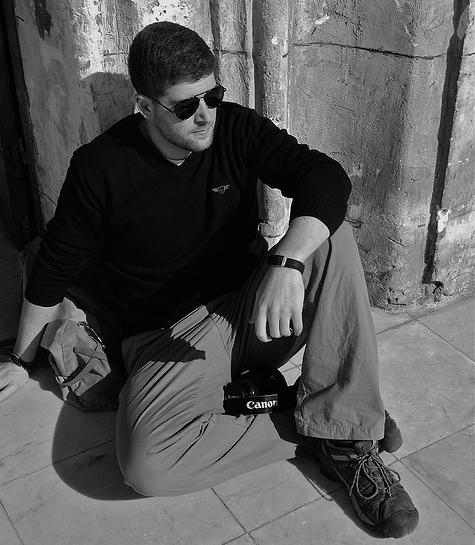Jacob Sotak ’13 served for 10 years in the U.S. Army before he attended Dartmouth, where he majored in Arabic language and literature. He is interested in the intersection of photojournalism and photography, and in his senior year he studied with photographer James Natchewey ’70, the Roth Distinguished Visiting Scholar.
Sotak’s article detailing the path to citizenship for a Honduran immigrant was featured in the December 30, 2013 edition of The New York Times, where he has served as a news assistant since the summer of 2013.
1) How did it feel to have your first article appear in The New York Times?
In a word, surreal. It was amazing to pick up a paper from a local newsstand and flip to my article. After the weeks of work—interviewing, writing and editing—it was a great feeling to see it printed on the page. But the news business is a fickle one and stories really only live for a day before they go into the recycling bin. Seeing my story come and go with such speed was a humbling experience, and one that gave me great respect for the writers who do it every day.
2) Did any specific classes, or experiences at Dartmouth, help you to prepare for this career?
I had to adapt my approach quickly in order to get enough data and emotion to make the article accurate as well as interesting. To do this, I relied on methods I learned while taking “Design Thinking” with Peter J. Robbie [associate professor of engineering]. Professor Robbie pushes his students to think laterally, which increases possible approaches to a problem, instead of linearly, which reduces them. By shifting my approach to a lateral one, I was able to get different and more colorful answers - answers that really brought life to the final piece. After the interview, I was faced with taking the transcript and turning it into a story worth reading. As I worked, I pulled out tricks from my Writing 5 class: I created an outline, I wrote many drafts, I edited needless words and trimmed wordy paragraphs. All the while, I had the oft-spoken words of my Writing 5 professor, Nancy Crumbine [visiting associate professor of writing], echoing in my ears: "Show, don't tell!"
3) You served for 10 years in the U.S. Army. Thank you for your service. Does your military experience influence your approach to writing? If so, how?
I believe that a writer brings to each piece her or his own particular set of experiences. For me, it was important to approach the whole writing process with a healthy respect for its difficulty while choosing not to fear it. I knew from my time in the Army that if I let fear set in—fear of failing, fear of writing something that was incorrect or that could bring harm to the individuals highlighted in the piece—I would overthink something I was confident I could do.
Sutton Lowry ’16 is the Alumni Relations Whitney Campbell Class of 1925 intern. Lowry is a psychology and brain sciences major from Seattle, WA.
Three Questions profiles alumni in pursuit of their passions.

